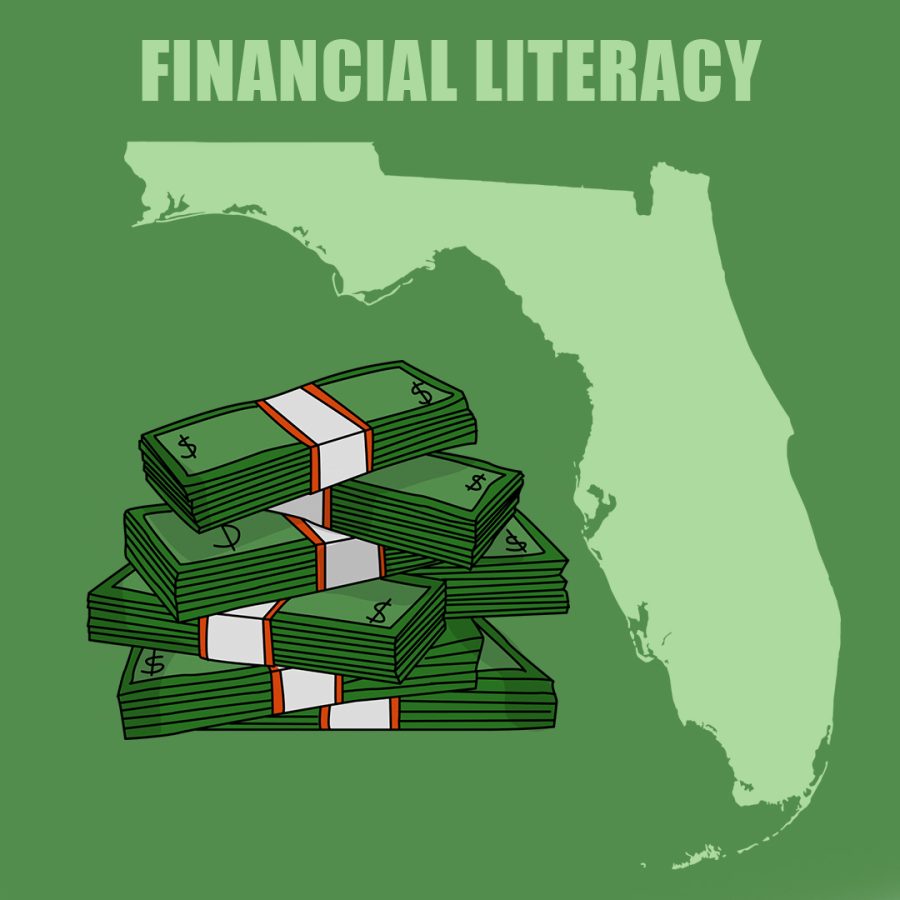Governor Ron DeSantis signs a new bill requiring personal finance credit for incoming 2023-24 high school students
The future of Florida education in highschools will now include a financial literacy class for all students. On March 22, 2022, both the House and Senate bill was passed in Florida to make personal finance a high school graduation requirement.
Currently, the graduation requirement is 8 elective credits, which will turn into 7 ½ because the financial literacy class will only be half of both a semester and credit.
According to the bill, this requirement is said to go into effect starting with freshmen entering the 2022-2023 school year, not any student enrolled in high school now. However, the county will be given a year to adjust to the bill, so this class will be in effect throughout the district for freshmen by the 23-24 school year.
According to Dianna Quay, Cape High’s current finance teacher, this class should be in an upperclassmen’s schedule. “Until you have a job, until you’re actually going out there- I don’t think it makes as much sense. I think it’s 11th and 12th grade material.” No official statement has been made about where in the schedule this class will be.
As far as the 7 day period is also being implemented, administration is not sure how the requirement will be placed into the schedule. After already losing one class, embedding the requirement into another class or still having it as its own class will be up to the district, according to Principle Christian Englehart.
“I think it’s important. I think that kids should graduate from highschool being financially literate, so this is a good thing,” Englehart said. However, since this is a state bill, the requirement will not apply to anybody in the IB program.
The bill was introduced originally in November of last year by Senator Travis Hutson, which was passed unanimously in March. The bill’s companion, sponsored by House Representative, Demi Busatta Cabrera, passed the same month.
The act’s official title is the Dorothy L. Hukill Financial Literacy Act, named after the late member of the Florida Senate who pushed for financial education in Florida.
Similar to Quay’s finance class, the class will cover the basics of debt, credit scores, loans, money management, investing, interest, dealing with a checkbook, and more. It will also include education about colleges and expenses that will be helpful to know, financially, right after highschool.
“This goes beyond helping our students understand what it means to pay a federal income tax or balancing your checkbook, it helps our students succeed financially.” Cabrera said.
Governor Ronald DeSantis was all for this bill as well, wanting to, “Providing a foundation for students that’s going to be applicable in their lives regardless of what path they take.”
In his speech before signing the bill in March, Desantis recalled his other efforts towards supporting Florida education, such as eliminating Common CORE math in 2019. “Our best standards for math actually have financial literacy principles embedded in there. Common CORE didn’t recognize financial literacy,” he said.
About 3 years ago the state would give schools $10,000 if their district implemented this class as a requirement. Although our district never did this, it shows how important it is to the state to have students financially educated.
Your donation will support the student journalists of Cape Coral High School. Your contribution will allow us to purchase equipment and cover our annual website hosting costs.








